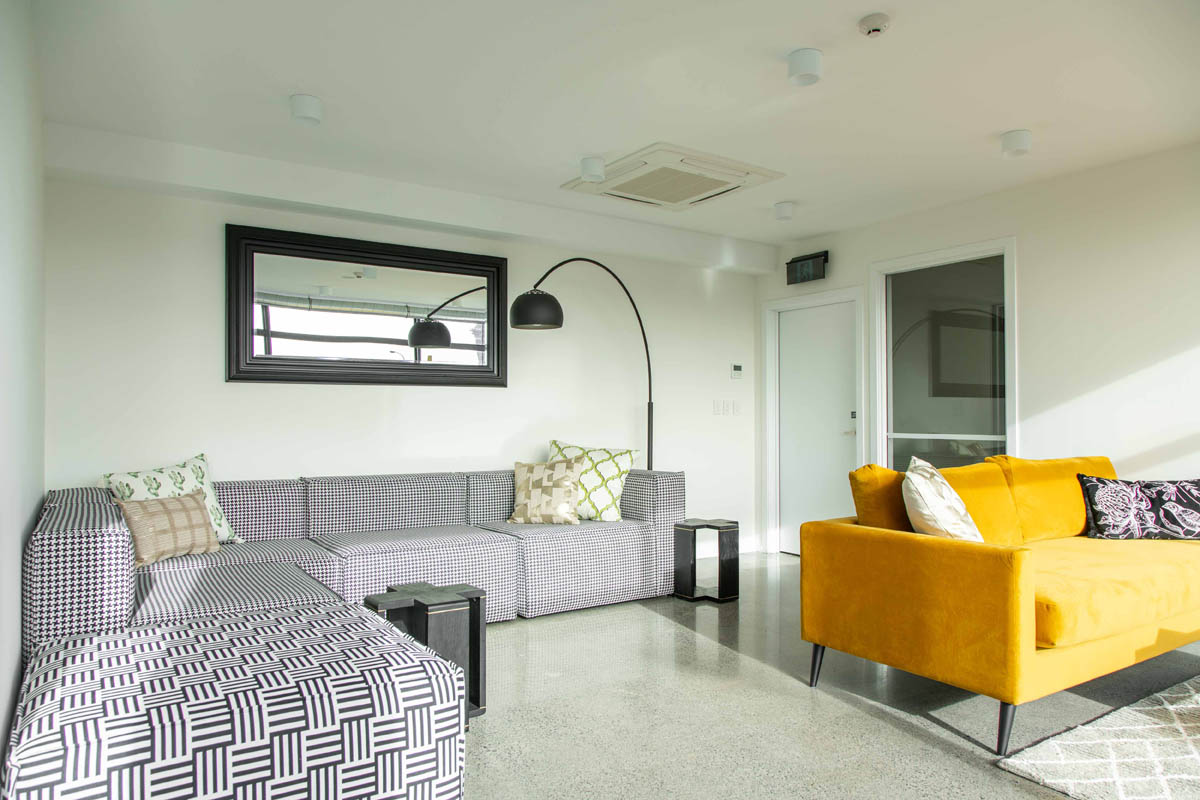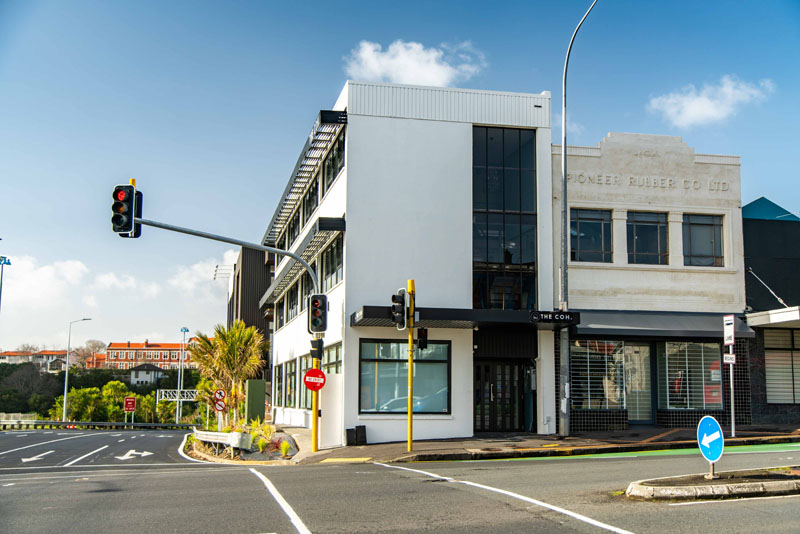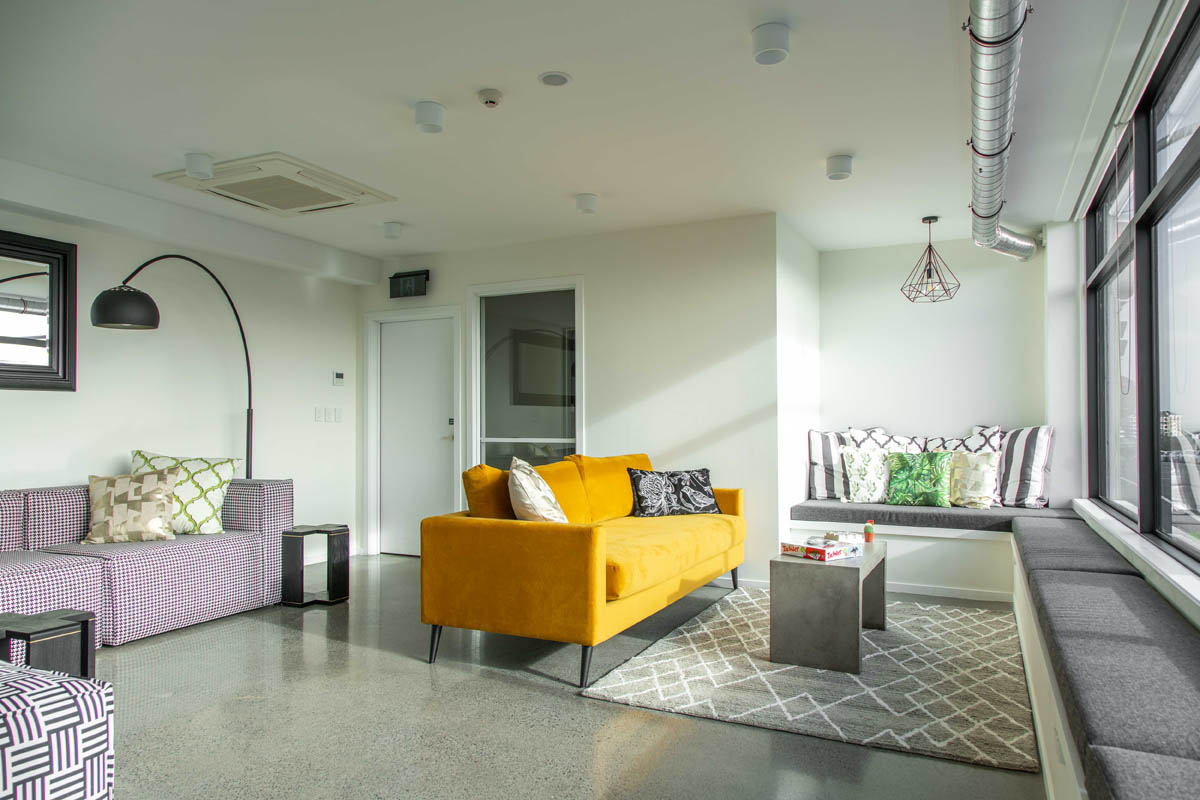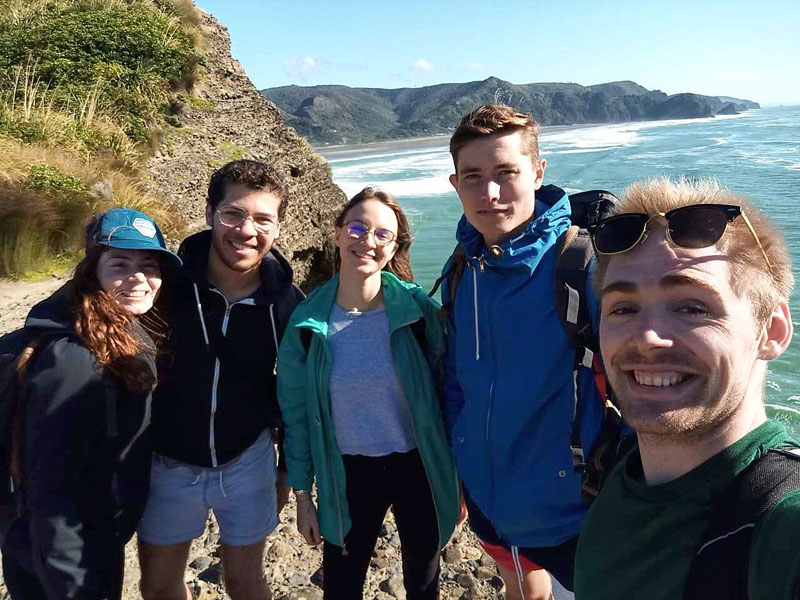Welcome to the second part of the My Coliving Space interview with The Coh Coliving, an urban coliving in Auckland, New Zealand.
If you haven’t read the first part yet, we suggest you go there before continuing to this one. In the first part, we talked with Ben about his experience before opening the Coh and what inspired him to create and manage the coliving as he does today.
And in this part, we will focus on the community aspect of coliving in Auckland and how its unique position in the world affects international communities and the overall coliving experience.
Enjoy!
About visitors
1. What is the typical coliver profile in The Coh. (age, occupation, etc.)?
Ben: We have people from various backgrounds. You’ve got your classics, which are digital nomads, software developers, and similar. Then we also, because we’re so close to Auckland CBD, have a lot of people in the corporate world such as accountants, finance, and lawyers as well.
We have the hospital just around the corner from us, so we have a lot of hospital workers, such as nurses. So, we have a broad range of people.

In terms of age, we have people from 22 to 35-year-olds, just to kind of keep that young professional vibe around the place.
2. Do you host locals?
Ben: Yes! Especially after the Covid pandemic. During the pandemic, we only had two New Zealanders and the rest were internationals. But during that first lockdown, everyone had to stay where they were, so we had people staying in The Coh. during this period for two or three months without leaving, and then after that, a lot of internationals went back to their home countries when they could. And that’s when we started filling it up with more Kiwis (New Zealanders) because there were no people coming to New Zealand. So, then, We got up to nearly 80% of all residents being Kiwis.
But now it’s all changing back to pre-covid, and a lot more internationals are around, which is great. It’s nice that a lot of people are coming from overseas and meeting the locals of New Zealand, learning about the culture from the Kiwis and The Coh. as well.
3. What do you think is the ideal length of stay to fully emerge in the community and experience?
Ben: During Covid, we had to slightly change how we operated, but typically, at the moment, we do a minimum of two months. I think that is a really good time to allow people to get settled.
If you have people moving out constantly, you lose that community aspect of things, and it just turns into a hostel or a place for backpackers. So that minimum two-month stay cements people in there and makes it feel like home.

Everyone knows each other because everyone’s on that minimum of two months. And people are usually staying for eight to 10 months. A lot of people come in saying Oh yeah, I’m going to just be staying for the two months and then end up staying for a year.
We also have people coming on secondment from corporate firms, like Ernst & Young, PWC, Deloitte, etc., and they typically come over for six months, from all around the world. In these cases, we also typically have a relationship with the company.
So, we have a lot of young professionals coming in, they’re able to easily meet a whole bunch of people straight away, as well as have the convenience of only a 15, 20-minute stroll into town to get to work.
4. New Zealand is pretty far away and the tickets are expensive, is that something that you took into consideration when you decided to put the minimum stay to be two months?
Ben: Yes, definitely. Pre Covid, it used to be a minimum of three months, but we’ve brought it down to two months at the moment. In terms of digital nomads, we don’t have as many of them compared to the US and Europe.

We have a lot of people who are, like I said, coming over here for secondment and staying in New Zealand for six months. Then, after that, they go off and do a bit of travel. In general, I think, people coming to New Zealand are here for at least three months because they want to do some work and then go traveling for the last month. So, I think it’s very different over here in New Zealand than in Europe, in terms of setup, at least at the moment.
It also all goes back to setting up those core values. Even when one person moves out and a new person comes in because we’ve still got that core group inside, people who are coming in instantly realize how everything works and have an easier time fitting in.
It’s interesting talking about the direction of aiming at people who would come over for a couple of weeks and then head off. That could also be an avenue that we go down in the future, but, at the moment, in terms of turnover, it is a lot more controllable and easier when people are staying for a bit longer.
Generally, about the coliving movement
5. Do you think coworking is a crucial component of coliving and why?
Ben: We don’t have a co-working space. We do have work benches and work spots within The Coh, though.
I think now with Covid, a lot of people started working from home, so you can go into the office three times a week, and then the other two days you can work from home.

So, there’s definitely an appetite for coworking within a coliving. I think pre Covid maybe you would be able to get away with it, but after Covid, you need coworking or working spaces within your living space.
6. What would you say is the most crucial element of a coliving?
Ben: I think for coliving, two things are the most important. The first is the community and the second is the convenience.
The convenience of just paying a weekly bill, which includes everything so residents don’t have to worry about the little things, and they can just get out and enjoy Auckland or get out and get work done. So, I think those are the two main aspects of co-living.
For the community, the people need to have a nice, safe, and fun environment to arrive in because the main thing is the community. It’s important that your residents are happy and getting along.

Looking at it from the business perspective, your residents are your customers, and, as long as they’re happy and they’re getting the service that they’re paying for, you can’t go too wrong with a co-living space.
Convenience-wise, In Auckland, when you are looking for an apartment or somewhere to rent, it’s usually a 12-month lease, whereas, we have a minimum of two months. They only actually have to give me 48 hours’ notice to vacate. So that’s a lot easier for them, to sign up and then just go from there because when people are traveling, plans always change, don’t they?
So, if they lock in a 12-month lease, they’re kind of stuck here in New Zealand for 12 months. But then there are also those people which are only staying here for a couple of months, so they don’t want to sign up for such a long lease. So that’s where we’ve also got that gap in the market.
7. One of the main selling points of colivings is the possibility to meet new people, share experiences, and maybe even develop new partnerships. Is this something you also had in mind when opening your place?
Ben: Yes, that is exactly how I wanted to do it. I wanted people to come into The Coh, meet an instant group of people, and make lifelong friends.

So, that is the main reason why we set it up like this, in terms of making sure people can come into a safe environment. And that’s why we also had the minimum two, and at the start minimum three months, to set that community vibe up and allow people to not just come in for a week or two and then leave because that was the hostel vibe..
And, with hostels, people come in typically for a weekend, to have a few drinks, and then they’re off. And you don’t really keep in touch with a lot of people that you meet at hostels, and we wanted to make sure to not make that experience when we were making The Coh.
8. Lastly, how do you see The Coh. developing in the next few years? Do you have a vision of what it will grow into, or some aspirations and goals that you’ve set for it?
Ben: I’ve got a vision of what I’d like it to look like in probably 20 years’ time. I’d like to have two more spaces in Auckland.
There are another two suburbs, which are on the city fringe where we’re located, which would be perfect for another two co-living spaces. So that’s what I’m working on at the moment, kind of keeping my eye out for any buildings, because that’s the hardest thing, finding the right kind of building to work with.
Because it’s a commercial business, you need to find either a large office or something similar and start from scratch, or an existing boarding house that you can renovate and repurpose.
From there, I also want to have a look down into Wellington, the capital of New Zealand. That’s also in the North Island and maybe set one up there. But my main goal is another two in Auckland and to have three in total.
I think having three in Auckland would be fantastic, and just really making sure that we’re the best of the best. If any other companies do come into the industry, just make sure that we’re above and beyond them.
Didn’t read part one of the interview?
